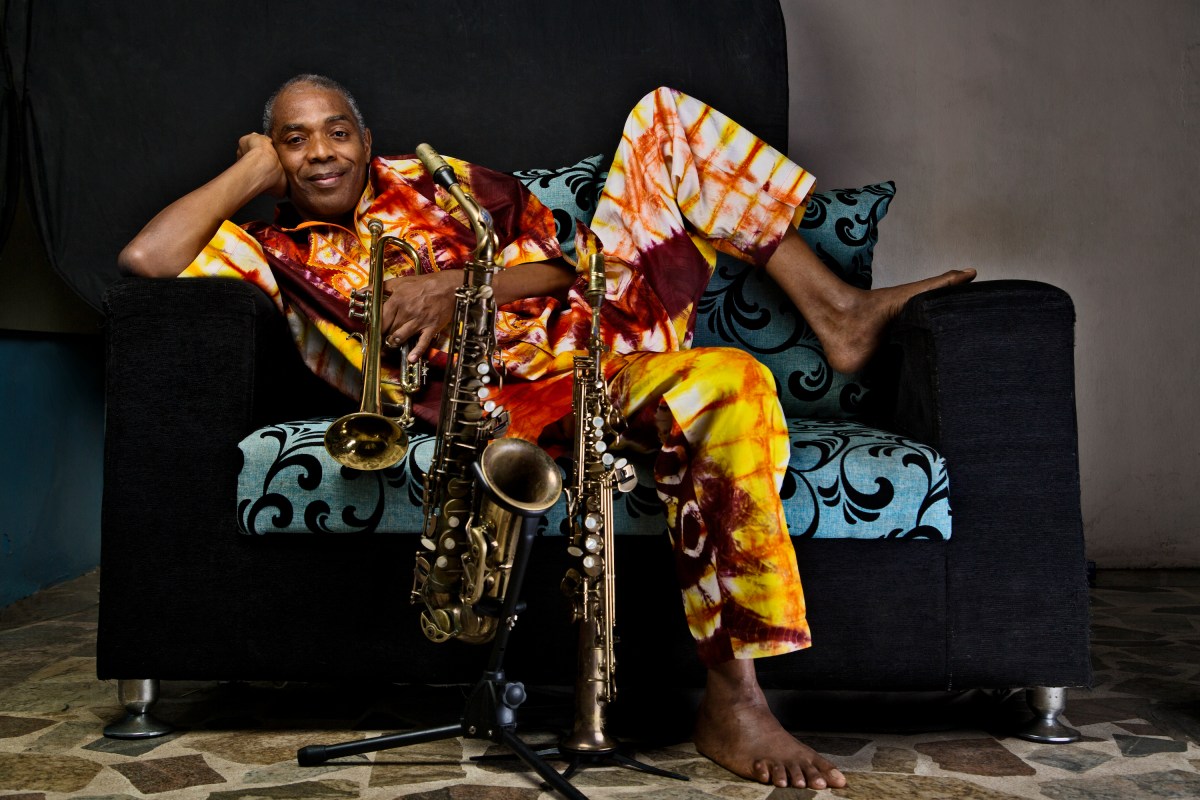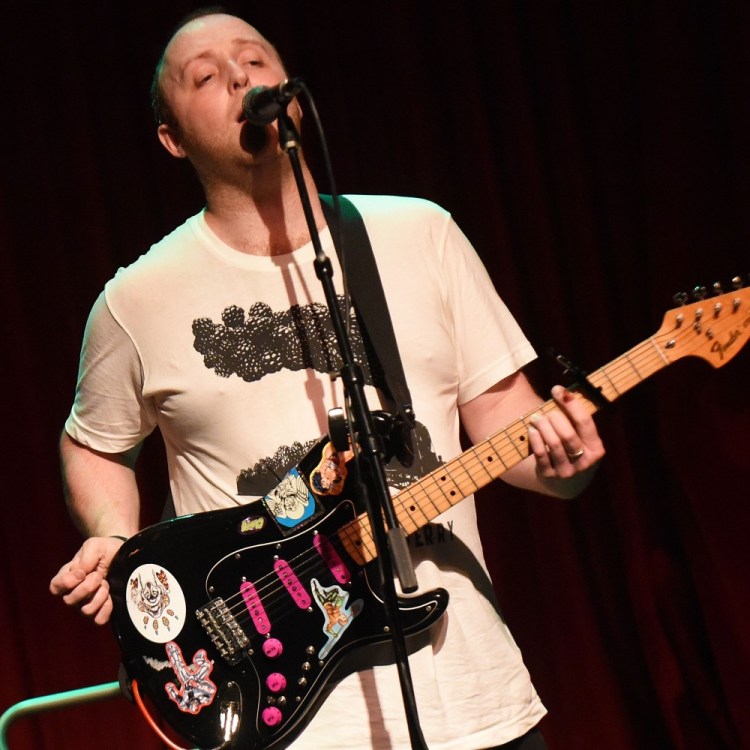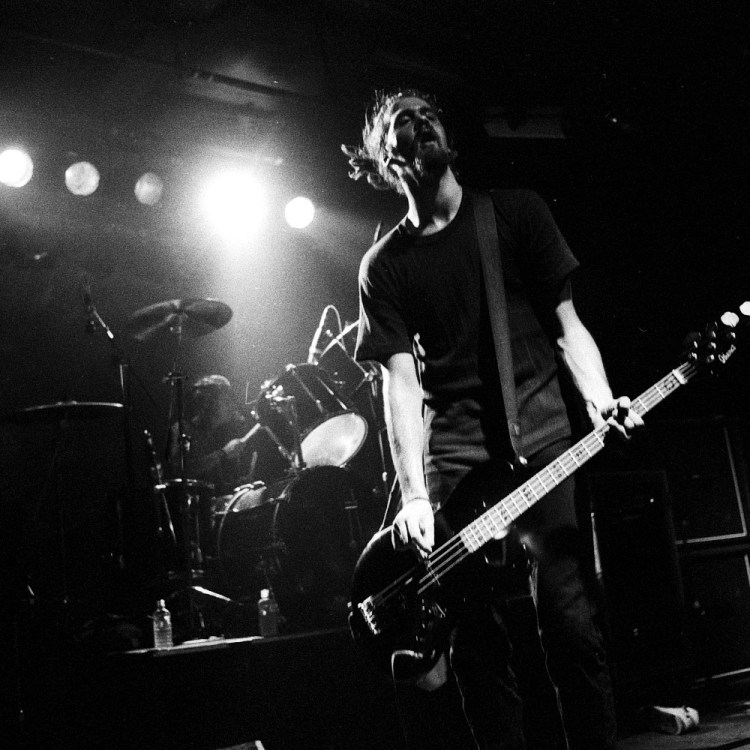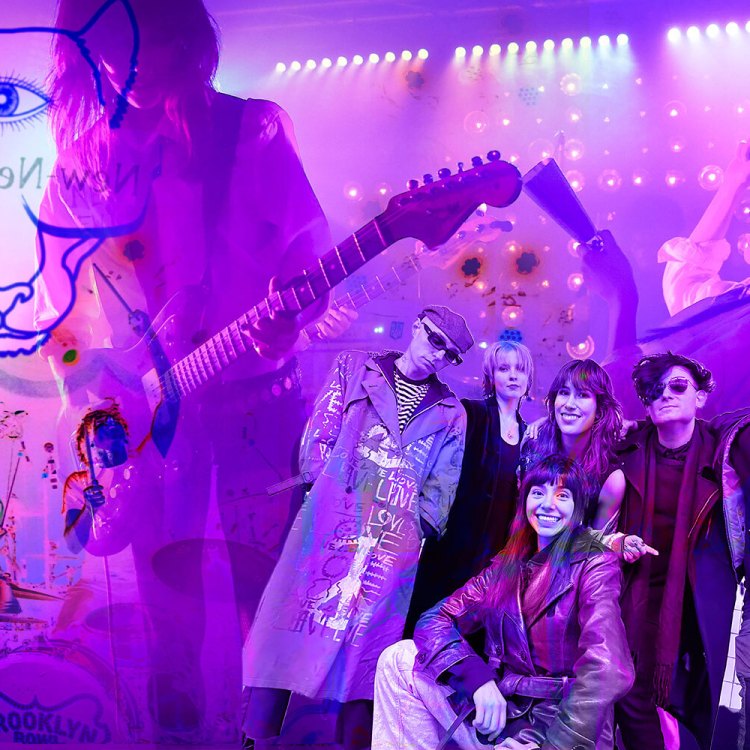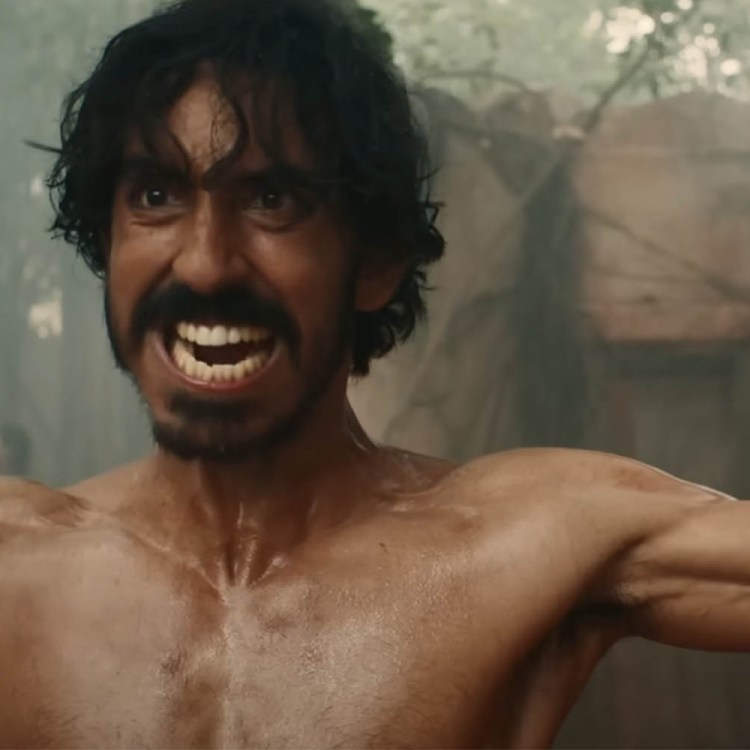There’s never been a better time to wrap yourself in the celebratory music of Femi Kuti. Though his pleas for unity and understanding are often laden with specific names and grievances specific to Africa, the universality of his words radiates outward now more than ever. Last week, Femi released his new record, One People, One World, taking the sprawling afrobeat odysseys that his father pioneered and distilling them into a succinct and euphoric masterwork of jubilant discontent.
The oldest son of storied Nigerian afrobeat bandleader Fela Kuti, 55-year-old Femi has entertained and inspired with his work across the globe since putting together his Positive Force in the ‘80s, a group that he still tours the world with to this day. Illuminated by their chemistry, One People’s plea for global unity feels like a reasonable ask. With Awomolo Opeyemi on guitar, Andrew Aghedo on bass, and Ayodele Alaba on drums, the group is elevated and sounds larger than they are. Femi’s son, Omorinmade Anikulapo – Kuti, also played bass and piano on several tracks. In an intergenerational exchange, Omorinmade studies music in England at Trinity College, the same as his late grandfather, Fela.
Here in New York, Femi’s a beloved musical scion who frequents high-vibe venues like Brooklyn Bowl. Back home of Lagos, Nigeria, he’s carrying on his father’s legacy of activism and disquiet at the second iteration of his community venue and gathering place, The Shrine, where the Kutis throw an annual Felabration every year.
“Like Africa itself, Afrobeat has endless possibilities within its structure,” Femi said of the new songs. “As we play live at The Shrine, the songs evolve, absorbing the energy of the audience. It’s like painting, with the changing hues and tones of the dancers coloring the music. When we take it into the studio, you hear all of those influences moving together.”
RealClearLife caught up with Femi to learn about what’s on his mind after over 40 years of making music, who changed his mind about the beauty of the saxophone, and what it will take for the world’s narrative about Africa to change.
There’s a lot of interplay between the universality of this record’s message and the specific places you go to with your lyrics. How do these changes you want for Africa mirror the larger institutional changes you hope to see all over the world?
If Africa gets its act together this will propel positive change globally. For instance, democratic values will have to be practiced in the United Nations. African currency will be accepted any/everywhere. Africa/Africans will be taken seriously, will be contributing positively, and it will be documented for all to see and know in medicine, technology etc.. Africa will be viewed differently by a larger part of the world and slowly but surely there will be peace and harmony.
Former Talking Heads frontman and devout afrobeat disciple David Byrne has cited The Shrine as an example of how the presence of an arts/cultural institution can help lift the neighborhood around it out of a depression. Where else is this happening in Lagos?
Yes, I agree. Weddings, funerals, bars that have small live bands, sports itself and performances in the church. All keep help keep instrument playing alive in Lagos.
We’ve seen a strong rise in moody, arty ‘protest music’ domestically since our latest president took power. On the inverse, the work that you, your father and your whole family makes seems to wrap messages and politics up in dance, rhythm and jubilation. Why have these positive sounds remained such a potent vessel for your values throughout the years?
I would think cause it’s from the soul of our hearts.
What horn player was the first to make you realize the instrument’s tremendous positive power, and why?
Mr. Charlie Parker. His dexterity, his improvisations. The way he played just seemed impossible.The way he manipulated the sax— I was completely fascinated and blown away.
What do you mean when you refer to the militarization of democracy on this album?
The military took over after the civil war and have since been manipulating and controlling government and our democracy. The military was in charge of writing the constitution; many of them ran and won the elections in 1999. [Former Nigerian president and career soldier Olusegun] Obasanjo dictated who told over from him he controlled his party. And we still have an ex-military man [Muhammadu] Buhari as president. They say [retired army general and former Nigerian president Ibrahim] Babangida still calls the shots. [Former Vice President] Atiku [Abakar] is thinking of running for the presidency in the next elections in 2019.
Yes, and since your last record, Muhammadu Buhari has become president. Given his atrocious human rights record, and personal censorship of your father, what effect has his fairly recent stature had on your work? Does it change the stakes at all?
Nothing has changed for me, I’m still singing what I have to sing. My goal isn’t to criticize the government because I want to be antagonistic, I criticize cause I believe great things can happen. Hopefully, the government will hear and change its negative direction for the betterment of our people.
This article was featured in the InsideHook newsletter. Sign up now.
